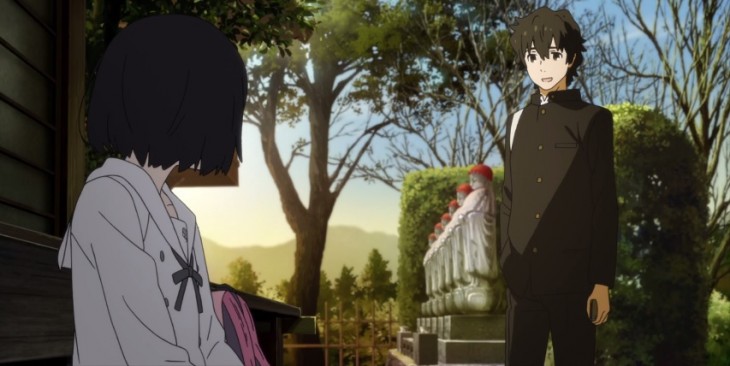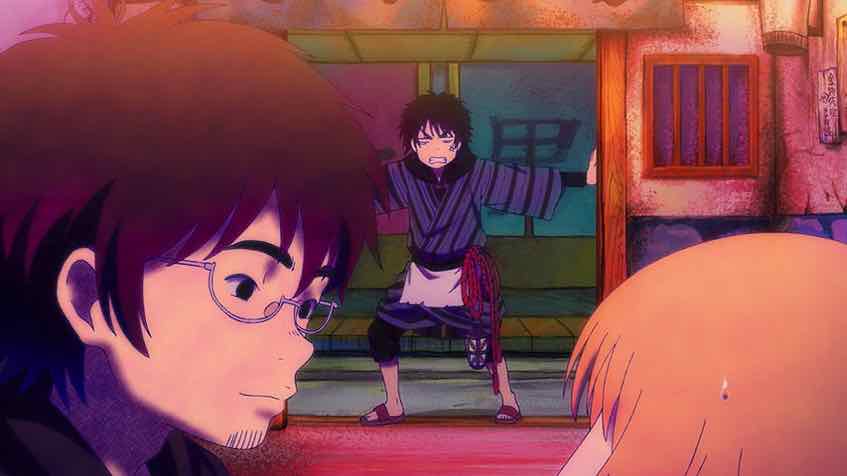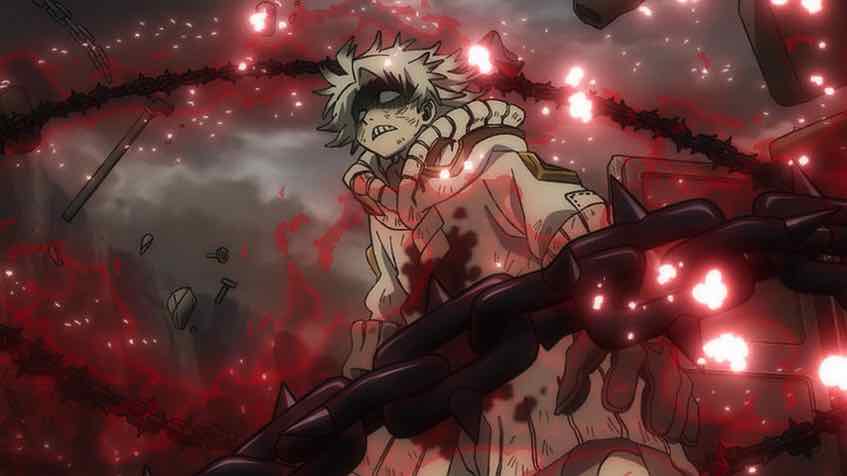I’m always ready to go back to Chichibu…
As usual with theatrical releases, I’m going to defer my main writeup until I have a chance to sit down with the subtitled version of Anthem of the Heart on Blu-ray. But as always I think it’s important to share a few impressions after seeing a movie for the first time, on the big screen.
So first off, yes – I did cry. It didn’t help that the person next to me was one those Japanese ladies that cries constantly and makes “Aww” noises at everything, which got incredibly annoying (I see these women at the movies a lot). But I did get there eventually myself – every time Okada Mari and Nagai Tatsuyuki venture into this mythology, it gets emotional.
As far as I can tell, there’s no direct link between Kokoro ga Sakebitagatterunda and AnoHana apart from the Chichibu setting. I saw no crossovers, no cameos, no references. But there is a thematic consistency here, and I think it’s quite notable because these series and films are so different from everything else Okada is doing these days. Quite frankly, I think this is her best side – there are very few otaku tropes here, and not a lot of irony. Both AnoHana and Anthem are, at heart, very innocent stories, unapologetically emotional and nostalgic for the bittersweet days of youth. And I think Okada is better at this kind of story than any other kind.
Is Anthem of the Heart as good as AnoHana? I don’t think I can judge, because it didn’t have 11 episodes to ingratiate itself to me. But as a standalone film I think it works very well, with an involving story and very relatable characters. As with AnoHana this is one where you want to check your cynicism at the door – the heart is worn very much on the sleeve, but there’s just so much heart to wear.
I won’t spoil the experience too much, but I will say that the set piece that closes the movie is really spectacular – not in terms of animation, but as a construct. It’s a great emotional payoff and a really clever bit of staging, very cinematic and grand while still feeling intimate and unforced. I think it’s fair to say that the same crowd that ripped AnoHana as melodramatic (as if that were a pejorative term) and saccharine are going to condemn this movie – emotional openness and lack of irony are not welcome at the cool kids table these days where anime is concerned. But the commercial success of both AnoHana and Kokoro ga Sakebitagatterunda is proof that there’s still a hunger for those qualities. Thank goodness for that – and that Nagai and Okada are so adept at building a story around them.






Jay Psi
November 8, 2015 at 12:27 pmAbout that ending – even though I bought into AnoHana it's ending was reaching for depths of emotion that weren't there. I would say it lingered a bit but that may be my lack of immersion speaking. How does KokoSake compare in this regard?
admin
November 8, 2015 at 5:07 pmHard for me to answer, both in order to avoid spoiling and because I bought into AnoHana's ending. All I can say is I thought the ending here was just about perfect for the story being told.
JJ
April 3, 2016 at 6:49 amWell I’ve seen KokoSake now, and that ending was just as good as you said it was – practically perfect to tie up the story being told.
I can’t think of any major missteps, outside of teenagers being unusually forgiving of matters they have little knowledge of. I think I have a new Okada/Nagai work of choice.
Revy
November 8, 2015 at 3:00 pmWell, now I wish I had gone to the LA to catch this on the 7th sigh.
Helen
November 8, 2015 at 3:42 pmI was a little worried going into this movie since the premise seemed so "treacle-y" but I honestly found it less melodramatic than AnoHana! There were of course one or two scenes which I thought were overly drawn out but only a few compared to AnoHana's tons. I'm glad I saw it and I'd love to hear the soundtrack for some of the songs again.
Kim
November 8, 2015 at 10:36 pmThat's pretty much what I am hearing from everyone. People seem to think this has a much stronger ending than Ano Hana (and while I did enjoy Ano Hana I did feel the ending was way too over the top)
Anyways I haven't seen anyone deriding this movie at all so far. All I've seen is praise (which frustrates me because I want to see it but can't)
ichigo daisuki
November 19, 2015 at 7:43 amWow, I am a latecomer in seeing this post. The only reference I noticed was at the beginning when Takumi was listening to Galileo Galilei (the band who performed Ano Hana's TV series opening and movie ending themes).
Faolin Eye
June 18, 2016 at 8:06 amSince I’m revisiting this post I’d just like to point out that Takumi was listening exactly to the movie ending theme of AnoHana, Circle Game from Galileo Galilei, so it is kind of a direct reference from the creators of the movie.
Nad
April 1, 2016 at 1:34 pmthere is a cameo. Friend A and Friend B from AnoHana. The two girls Naruko hung out with showed up a bit